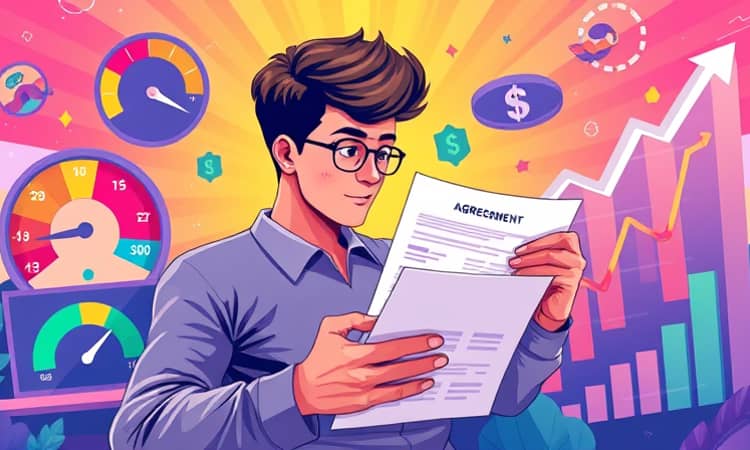Loans can be powerful financial tools, offering opportunities to purchase homes, vehicles, or consolidate debt. Yet, they also carry significant influence over your credit health. Understanding exactly how each stage—from application to repayment—affects your credit score is essential for making informed decisions.
In this comprehensive guide, we unravel the mechanisms of credit scoring, explore short-term and long-term loan effects, and provide actionable strategies for leveraging loans to build stronger credit.
Understanding Credit Scores
A credit score is a numerical snapshot of your creditworthiness, calculated by major bureaus: Equifax, Experian, and TransUnion. Lenders rely on these scores to gauge risk before approving new credit.
The most widely used model, FICO, assigns weights to five key factors:
This breakdown highlights why on-time payments matter most and why carrying high balances can limit your creditworthiness.
How Loan Applications Affect Your Score
When you apply for a loan, lenders perform a hard inquiry—also called a hard pull—on your credit report. This action can cause a small, temporary drop in your score, typically fewer than five points.
- Hard inquiries remain on your report for up to two years.
- Most scoring models only consider inquiries in the past 12 months.
- Multiple applications within a short span may signal financial distress.
Being strategic about timing helps you avoid unnecessary inquiries and preserve your score.
Short-Term Impacts of Taking a Loan
Immediately after taking on a new loan, two primary factors influence your credit:
1. Initiation of new debt—your total outstanding balances increase, raising your credit utilization ratio.
2. Recent hard inquiry—a data point added to your credit history that briefly depresses your score.
While these effects are temporary, they illustrate why you may notice a dip in your score shortly after loan origination.
Long-Term Effects of Loans on Credit
Over time, the manner in which you manage the loan has a far greater impact than the initial inquiry or balance increase.
- Positive Effects:
- Consistent, on-time payments build a robust payment history.
- Installment loans diversify your credit mix beyond revolving accounts.
- Using new loan funds to reduce credit card balances lowers utilization.
- Negative Effects:
- Missed or late payments significantly damage your score.
- High outstanding balances contribute negatively to amounts owed.
- Opening too many accounts can shorten average account age.
By focusing on disciplined repayment, you harness the loan’s potential to enhance creditworthiness.
Loan Repayment and Score Recovery
Once you demonstrate a record of reliable repayments, your score can rebound and even exceed its pre-loan level. Lenders value both the length and consistency of your payment history.
Key considerations for maximizing recovery:
- Pay at least the minimum due by the statement date.
- Aim to repay ahead of schedule when possible.
- Keep other credit accounts open to maintain average account age.
After a loan is paid as agreed, the account remains on your credit report for up to ten years, serving as a testament to your fiscal responsibility.
Managing Multiple Loans and Accounts
As you accumulate loans—whether student, auto, or personal—balancing them effectively becomes critical. Lenders assess both your credit score and debt-to-income (DTI) ratio when considering new credit, although DTI is not a direct scoring factor.
Best practices include:
- Spacing out new credit applications to avoid clustering hard inquiries.
- Maintaining a mix of installment and revolving accounts.
- Monitoring overall debt levels to ensure sustainable repayment commitments.
By orchestrating your credit portfolio thoughtfully, you mitigate potential red flags and maintain favorable lending terms.
Personal Loans Versus Other Credit Types
Understanding the distinction between installment loans and revolving credit is fundamental when planning your borrowing:
Installment loans—such as personal loans, auto loans, and mortgages—feature fixed payment amounts over predetermined periods. They can strengthen your credit mix and reduce revolving utilization when used for debt consolidation.
Revolving credit—primarily credit cards—offers ongoing borrowing up to a credit limit. Proper utilization under 30% of your available limit is crucial to maintain a healthy score.
Choosing the right type of credit for your needs, and using it judiciously, positions you for both short-term funding solutions and long-term credit enhancement.
In summary, loans exert multifaceted influences on your credit score at every stage. By approaching applications with foresight, managing repayments diligently, and maintaining a balanced credit profile, you transform loans from potential pitfalls into powerful instruments for credit improvement. Armed with these insights, you can navigate borrowing decisions confidently, accelerating your journey toward financial well-being.
References
- https://www.experian.com/blogs/ask-experian/how-does-a-personal-loan-impact-your-credit/
- https://www.investopedia.com/ask/answers/111615/are-personal-loans-bad-your-credit-score.asp
- https://www.lendingtree.com/credit-repair/ways-personal-loans-can-influence-your-credit-score/
- https://www.nerdwallet.com/article/loans/personal-loans/personal-loan-affect-credit-score
- https://www.capitalone.com/learn-grow/money-management/how-personal-loan-affects-credit-score/
- https://www.foothillcu.org/Resources/Financial-Health/Financial-Blog/How-to-Use-Personal-Loans-to-Build-Credit-4-Smart
- https://www.experian.com/blogs/ask-experian/credit-education/score-basics/what-is-a-good-credit-score/
- https://www.experian.com/blogs/ask-experian/can-personal-loan-hurt-credit-score/














